Resources
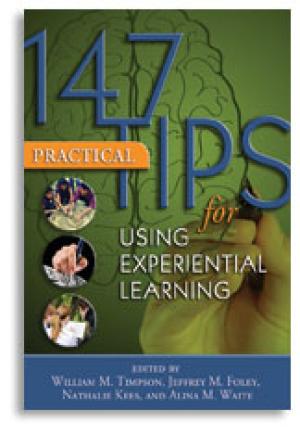
The latest addition to our continuing 147 Tips series, 147 Practical Tips for Using Experiential Learning, explores the many options and strategies available in the exciting world of experiential learning. Editors Timpson, Foley, Kees, and Waite have gathered a myriad of practical and insightful tips and brought them together in a delightful and easy-to-use guide that illuminates a pivotal and rewarding subject. In this book you’ll discover valuable tips on topics including: Learning outside the classroom
Exploring alternative approaches
Tapping into the creative arts
Addressing diversity issues
Developing leadership skills Whether you are a new teacher starting out on the experiential learning journey for the first time, or a veteran educator looking to revitalize your practice for the next leg of the road, this volume will provide you with priceless pointers and examples. (From the Publisher)
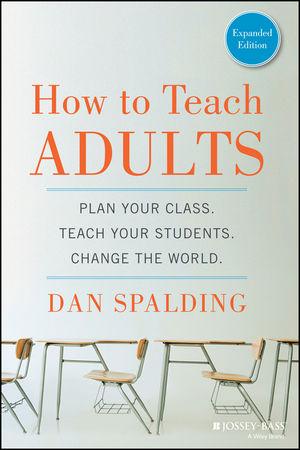
Your hands-on guide to teaching adults. . . no matter what the subject In this expanded edition of How to Teach Adults, Dan Spalding offers practical teaching and classroom management suggestions that are designed for anyone who works with adult learners, particularly new faculty, adjuncts, those in community colleges, ESL teachers, and graduate students. This reader-friendly resource covers all phases of the teaching process from planning what to teach, to managing a classroom, to growing as a professional in the field. How to Teach Adults can guide new instructors who are trying to get up to speed on their own or can help teacher trainers cover what their students need to know before they get in front of a class. It is filled with down-to-earth tips and checklists on such topics as connecting with adult students, facilitating discussions, and writing tests, plus everything you need to remember to put into your syllabus and how to choose the right textbook. Dan Spalding reveals what it takes to teach all students the skills they need to learn, no matter what the topic or subject matter. Full of vivid examples from real-world classrooms, this edition: Shows how to get started and tips for designing your course Includes information for creating a solid lesson plan Gives suggestions for developing your teacher persona How to Teach Adults offers the framework, ideas, and tools needed to conduct your class or workshop with confidence. (From the Publisher)
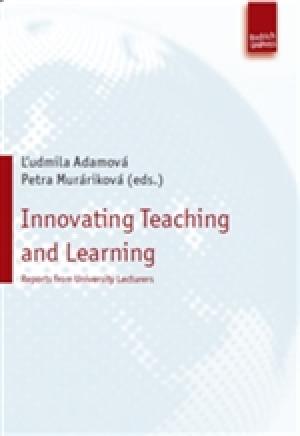
Click Here for Book Review Abstract: The book brings together unique teaching experiences of young researchers innovating their teaching and student learning and enhancing student engagement. Their teaching innovations serve as a valuable source of inspiration for other young teachers who face similar pedagogic problems.
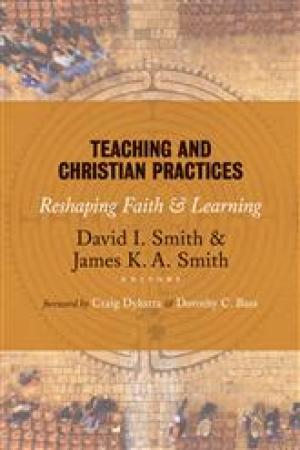
Over the past twenty years there has been a ferment of reflection on the integration of faith and learning -- yet relatively little notice has been paid to the integration of faith and teaching in the Christian university. In Teaching and Christian Practices twelve university professors describe and reflect on their efforts to allow historic Christian practices to reshape and redirect their pedagogical strategies. Whether using spiritually formative reading to enhance a literature course, table fellowship to reinforce concepts in a pre-nursing nutrition course, or Christian hermeneutics to interpret data in an economics course, the authors present a practice of teaching and learning rooted in the rich tradition of Christian practices -- one that reconceives classrooms and laboratories as vital arenas for faith and spiritual growth. (From the Publisher)
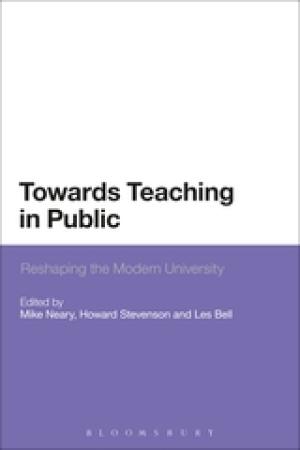
Click Here for Book Review Abstract: Towards Teaching in Public: Reshaping the Modern University explores how the contested relationships between policy, curriculum and pedagogy are reshaping the modern university and examines the impact of conceptualisations of teaching in public on this debate in this age of academic capitalism. It traces the emergence of strategies for open access, with particular reference to the contribution of technology and e-learning, to the emergence of teaching in public as a critique of current educational policy. The contributors combine policy analysis with a consideration of pedagogical issues and an exploration of the student experience. This collection draws together chapters by experienced scholars and practitioners within the field of teaching and learning in higher education. (From the Publisher)
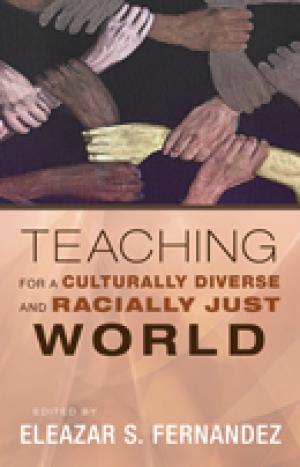
Click Here for Book Review Abstract: Cultural and ethnic diversity is the reality of our world, and much more so in this age of heightened globalization. Yet, do our ways of doing theological education match with our current reality and hopes for a colorful and just tomorrow? How shall we do theological formation so it helps give birth to a culturally diverse, racially just, and hospitable world? This edited volume gathers the voices of minoritized scholars and their white allies in the profession in response to the above questions. More particularly, this volume gathers the responses of these scholars to the questions: What is the plight of theological education? Who are the teachers? Who are our students? What shall we teach? How shall we teach? How shall we form and lead theological institutions? It is the hope of this volume to contribute to the making of theological education that is hospitably just to difference/s and welcoming of our diverse population, which is our only viable future. When we embody this vision in our daily educational practices, particularly in the training of our future religious leaders, we may help usher in a new, colorful, and just world. (From the Publisher)

Click Here for Book Review Abstract: For many aspiring academics, the transition from doctoral student to classroom teacher is a challenging one. The classroom culture, the needed pedagogical skills, and the expected level and type of work are significantly different in the two environments. Nevertheless, most doctoral students go on to teach in undergraduate or seminary classrooms. To prepare the PhD students at McMaster Divinity College to negotiate this transition successfully, the faculty holds a biennial colloquium covering the major dimensions, both theoretical and practical, of a Christian teaching vocation. On the basis of the presentations of the colloquium, the essential topics have been addressed in essays prepared for this volume for the benefit of all who aspire to excellence in their teaching, especially those in Christian higher education. (From the Publisher)
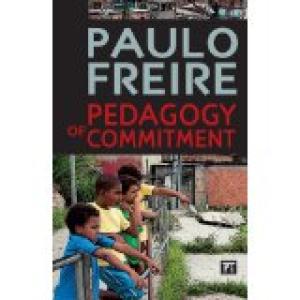
This new book, constructed from Paulo Freire’s writings near the end of his life, is characterized by the eloquence of his dreams—dreams that constituted the utopia underlying Freire’s lifelong work. Freire challenges all educators to create Circles of Dialogues, or reflective spaces, for passionate and critical reflection that is coherent and humanizing, favoring the oppressed peoples of the world. The chapters, crafted toward the end of the twentieth century, reflect Freire’s deep concern with the assault by neoliberal policies on the basic democratic rights of the dispossessed, as he argues for the right and facility of the people to take power by reinventing power democratically. Freire’s critical reflections were prescient of the twenty-first century’s revolts and denunciations of autocratic and antidemocratic policies during the Arab Spring, the Occupy movement, and other courageous demonstrations for social justice throughout the world. Once more, Freire challenges our conscience in accessible, deep, thought-provoking writings that urge us to rehumanize popular education, employing “critical reflection steeped in history, [and] a more critical knowledge of how society works and functions.” (From the Publisher)
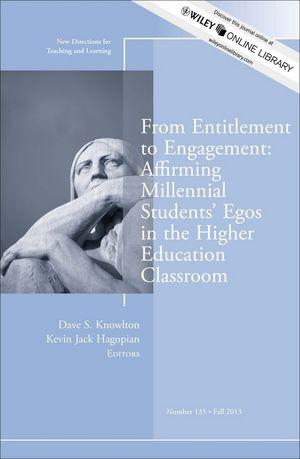
Click Here for Book Review Abstract: This volume addresses theories and practices surrounding the entitled, self-absorbed students called Millennials. Stereotypical Millennials are often addicted to gadgets, demand service more than education, and hold narrow perspectives about themselves and those around them; when seen through this lens, Millennial students can understandably frustrate the most dedicated of professors. The contributors show how new and better educational outcomes can emerge if professors reconsider Millennials. First and foremost, many of these students simply don’t fit their stereotype. Beyond that, the authors urge faculty to question commonly held assumptions, showing them how to reevaluate their pedagogical practices, relationships with students, and the norms of college classrooms. Contributors focus on practical means to achieve new and more evocative outcomes by treating Millennial students as serious collaborators in the learning process, thereby helping those students to more closely identify with their own education. The assignments that professors give, the treatment of topics that they broach, and the digital tools that they ask students to employ can shift students’ concerns away from a narrow focus on impersonal, technical mastery of content and toward seeing themselves as Millennial thinkers who fuse their lives with their learning. 
This is the 135th volume of this Jossey-Bass higher education series. New Directions for Teaching and Learning offers a comprehensive range of ideas and techniques for improving college teaching based on the experience of seasoned instructors and the latest findings of educational and psychological researchers. (From the Publisher)
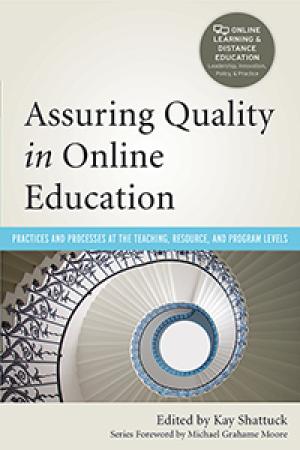
Click Here for Book Review Abstract: Online distance education continues to grow at a fast pace, even outpacing the overall growth of U.S. higher education. Demands for quality are coming from all shareholders involved. As if caught by surprise, a patchwork response to quality is often the typical organizational response. The result can be inconsistent and uncoordinated levels of value to those invested in online learning. This often promotes negative images of the educational experience and institution. Comprised of highly regarded experts in the field, this edited volume provides a comprehensive overview of quality assurance, a snapshot of current practices and proven recommendations for raising standards of quality in online education. Topics discussed include: * Improving practices for teaching online * Using educational analytics for quality assurance and improvement * Accessibility: An important dimension of quality assurance * Assuring quality in online course design * Assuring quality in learner support, academic resources, advising and counseling * The role and realities of accreditation This text clearly answers the call for addressing quality from a broad, deep and coordinated understanding. It addresses the complexities of quality assurance in higher education and offers professionals top-shelf advice and support. *This text is also appropriate for students enrolled in Educational Technology and Higher Education Administration Masters and PhD programs (From the Publisher)